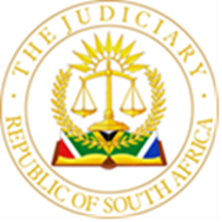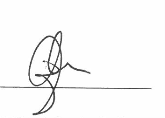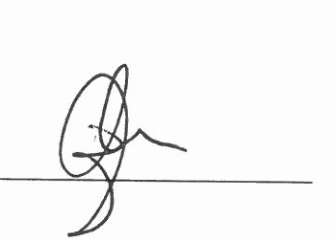7

IN THE HIGH COURT OF SOUTH AFRICA
GAUTENG DIVISION, PRETORIA
Case No: 11897/2022
(1) REPORTABLE: NO (2) OF INTEREST TO OTHERS JUDGES: NO (3) REVISED SIGNATURE DATE 
 06 OCTOBER 2022
06 OCTOBER 2022
In the matter between:
NONXUBA: NOVELWANO ALICIA Applicant
and
THE SOUTH AFRICAN LEGAL PRACTICE COUNCIL First Respondent
THE LEGAL PRACTICE COUNCIL: GAUTENG Second Respondent
PROVINCIAL OFFICE
JUDGMENT
NDLOKOVANE AJ
INTRODUCTION
[1.] This court is called upon to inter alia review and set aside the decision of the first and/or second respondents made on or about 14 February 2022, in terms of which the applicant's application for a Fidelity Fund Certificate was refused; to declare that the applicant have complied with all necessary statutory requirements for the issuing of a Fidelity Fund Certificate in her name and to compel the Respondents to immediately issue a Fidelity Fund Certificate to the applicant.
[2.] The application is opposed by the first and second respondents.
BACKGROUND FACTS
[3.] The factual background in this present application has been succinctly summarised in the applicant’s heads of arguments as follows:
3.1 The Applicant is an admitted attorney of this Court. She commenced practicing as an attorney in her husband's (ZMM Nonxuba) law firm, Nonxuba Inc. in the beginning of 2018. Although she was a salaried employee of Nonxuba Inc.
3.2. Due to the ongoing litigation against her husband and his firm, and her concern of the impact thereof on her as an attorney, the Applicant resigned from Nonxuba Inc. in September 2021. In October 2021 she established her own practice, NA Nonxuba Attorneys. She also opened her own trust account. For the first time, as an attorney, the Applicant now operates, controls and is responsible for her own trust account.
3.3 The Applicant applied for a Fidelity Fund Certificate for the year 2022. This was done on the on-line application platform. She successfully completed all the required parameters of the on-line application form. With regard to the submission of the audit certificate pertaining to her trust account, she advised that this is for the future as she had only commenced practice in October 2021 and her trust account was still to be audited.
3.4 On 8 February 2022, she was verbally advised that the Second Respondent had an issue with the audit certificate of Nonxuba Inc.
3.5 On 14 February 2022, she was formally advised that her application for a Fidelity Fund Certificate was declined. Attempts to resolve the matter with Mr. Van Staden the director of the first respondent failed.
THE PARTIES
[4.] The applicant is a female major attorney and director of NA Nonxuba Attorneys which practice is situated at 377 Rivonia Boulevard, Rivonia, Johannesburg.
[5.] The First Respondent was established as a body corporate in terms of section 4 of the Act. And an institution exercising a public power or exercising a public function in terms of the Act and whose decision in the present application is sought to be corrected.
[6.] The Second Respondent is the LEGAL PRACTICE COUNCIL: GAUTENG PROVINCIAL OFFICE, situated Procforum Building 123 Paul Kruger Street Pretoria and was established as a provincial council of the First Respondent in terms of section 23 of the Act and exercising a public power or exercising a public function in terms of the Act.
THE APPLICABLE LEGAL PRINCIPLES
[7.] The requirements for a Fidelity Fund Certificate are set out in Chapter 7 of the Act and in particular sections 84 and 85 of the Legal Practice Act (the act). These sections are to be read with the rules 47, 48 ,49 and 54 of the LPC Rules.
[8.] Section 84(1) of the Act provides that every attorney (other than those exempt) who practise or is deemed to practise for their own account either alone or in partnership or who is a director of a practice, which is a juristic entity, must be in possession of a Fidelity Fund Certificate. Section 84(5) provides that a legal practitioner referred to in subsection who (a) transfer from one practice to another or (b) ceases to practice, must give notice of this fact to the council and comply with the relevant requirements in relation to the closure of that legal practitioner’s trust account and in the case of para(b) returns his certificate to the council.
[9.] Section 85 of the Act prescribes the statutory procedure for the applying of and issuing of a Fidelity Fund Certificate. A practitioner who is obliged to be in possession of a Fidelity Fund Certificate is obliged to apply for such certificate in terms of the rules.
Rule 47 of the South African Legal Practice Council Rules made under the authority of Sections 95(1), 85(3) and 109(2) of the Legal Practice Act (the Rules') details the specific requirements which need to be met in order for a legal practitioner to apply for a Fidelity Fund Certificate.
[10.] Section 86(1) provides that every legal practitioner referred to in s.84(1) must operate a trust account. This section must be read with Rule 54(19) which provides:
Responsibility for ensuring compliance
“54.19 Every partner of a firm, and every director of a juristic entity will be responsible for ensuring that the provisions of the Act and of those rules relating to the trust account of the firm are complied with”.
[11.] Again Section 19(3) of the Companies Act 71 of 2008 provides that:
“If a company is a personal liability company, the directors or past directors are jointly and several liable together with the company, for any debts and liabilities of the company that were contracted during the respective period of their directorship”.
[12.] The Applicant contends that she has complied with all the requirements for a Fidelity Fund Certificate to be issued to her. Her application was completed in terms of Schedule 7B as envisaged in Rule 49. The Applicant relies upon certain provisions of PAJA in seeking an order to review and set aside the Respondents' decision of refusing to issue the Applicant with a Fidelity Fund Certificate. In contrast, the respondent contends in its answering affidavit that the Applicant's request for the issuance of a Fidelity Fund Certificate was refused for valid legal reasons and same are not impugnable. These reasons include:
12.1 That the Applicant did not meet the requirements necessary to be issued with a Fidelity Fund Certificate;
12.2 ln respect of the audit report of Nonxuba Inc. for 2021, the Applicant was referred to section 84(1) of the Legal Practice Act 28 of 2014 and Rule 47 of the LPC Rules;
12.3 Section 47.7.1 is dealt with in detail regarding Fidelity Fund Certificates when issued to a practitioner for the first time.
12.4 Mention was made of the ongoing litigation and the management of the trust account of Nonxuba Inc., which concerns are subject to ongoing litigation under WCHC case number 10313/21. The Applicant is a party thereto, joined to the proceedings as the Third Respondent. In terms of section 85(6)(a) of the Legal Practice Act, the Respondents must be satisfied that an applicant for a Fidelity Fund Certificate has complied with the provisions of Chapter 7 of the Legal Practice Act and that the Respondents are not so satisfied because the facts upon which the application in the WCHC is based, clearly establish that the provisions of section 87(1) of the Legal Practice Act has not been complied with. The letter succinctly deals with compliance with Chapter 7 of the Legal Practice Act. In the final analysis, the Respondents concluded that the Applicant did not comply with the provisions in Chapter 7 of the Legal Practice Act.
GROUNDS FOR REVIEW ON TERMS OF PAJA
[13.] The applicant in her founding papers states that, the decision of the respondents to refuse her application for a Fidelity Fund Certificate is unlawful for the following reasons:
“In terms of section 6(2)(a)(iii) and 6(2)(e)(ii) of PAJA, I reasonably apprehend that LPC: Gauteng or LPCSA and Mr Van Staden (or the decision maker(s) if not him) are biased or reasonably suspected of bias against me and have an ulterior purpose or motive in refusing my application for a certificate. He/they certainly is/are not exercising a rational and reasonable decision-making mind. He/they is/are either acting purely on instructions of others and not exercising an independent mind, or he/they is/are biased against me for reasons within his/their own mind.
Mr Van Staden is currently the curator of the trust account of Nonxuba Inc., as per the court order of Le Roux AJ dated 14 August 2021. He is clearly fully appraised of the ongoing litigation referred to above. He certainly knows the extent to which the applicant is involved and not involved in that litigation;
That in terms of section 6(2)(e)(ii) of PAJA, the Respondents and Mr Van Staden's decision is taken for an ulterior purpose or motive.;
that in terms of section 6(2)(d) of PAJA, the Respondents and Mr Van Staden's decision is influenced by an error of law. He has wrongly created an additional requirement, namely the acceptance of the audit certificate of my previous employer, as a requirement for the granting or refusing to grant me a certificate. As indicated, there is no such legal requirement.
He also wrongly considered the fact that the LPC does not accept the audit certificate of Nonxuba Inc. as a consideration in refusing to grant me a Fidelity Fund Certificate.”
[14.] The Applicant to support her contentions sought reliance on the unreported judgments in the matter of: Law Society of the Northern Provinces v Vijloen (094/2010) and Law Society of the Northern Provinces v Dykes& others (646/2010) (2010) ZASCA 176 (02 December 2010).
[15.] The respondents in their heads of arguments submits that in the same judgment, the court held contrary to the applicant’s submissions and further submitted that the two unreportable judgements are distinguishable from the present application. In that the Law Society had obtained an interdict from the high court, restraining Mr Setshogoe from practising at the time when he applied for a fidelity fund certificate. It was in these circumstances that the secretary refused to issue the fidelity fund certificate. That is not the case here. The Applicant's reliance on the above judgment is misconceived. This application is distinguishable from the facts in the above judgment. In the current matter: There are pending proceedings in the Western Cape High Court against the Applicant and her husband.
15.1 Considering the seriousness of the case against the Applicant and her husband, the court already granted an order divesting the Applicant and her husband from operating and transacting on the Nonxuba Inc trust accounts. That matter, inter alia, has to do with the management of trust account.
14.2 A curator bonis was appointed to administer all the medico-legal litigation and to take control of the trust accounts.
15.3 The Applicant and her husband consented to the court order which has such invasive effect on their ability to practise law. Although the Applicant and her husband have not been suspended from practising law, the order has the effect of suspension.
15.4 Accordingly, the Respondents acted responsibly in that they refused to issue a Fidelity Fund Certificate to the Applicant.
[16.] In the present case, I agree with the respondents’ submissions in this regard in that the Applicant on her own version states that she has been working as a salaried employee in the firm of her husband and occupied the position of a director since 12 February 2018. The applicant does not deny that she applied for a Fidelity Fund Certificate for every financial year until 2021.
[17.] Whether the Applicant was a de facto or de jure director is neither here nor there; the law accommodates the position of a de facto director and considers such incumbent in the same way as the de jure director. In fact, a de facto director owes all the same statutory and common law duties to the juristic person as an de jure director. Accordingly, the Applicant's excuse that her name does not appear in the incorporation documents of Nonxuba Inc, lodged at the CIPC, changes nothing. The fact remains that the Applicant occupied the position of director. A finding that the Applicant was a director at Nonxuba Inc is dispositive of the application.
[18.] I am of the view that there is indeed overwhelming evidence before court pointing only to one conclusion, that is the Applicant was/is a director at Nonxuba Inc. Although the Applicant claims that she resigned her directorship at Nonxuba Inc, and contends that the respondents were notified of this, she could not refute the claim by the respondent’s that their records show that she remains a director and the Respondents have no knowledge of the Applicant's resignation. The application must therefore fail.
ORDER:
Consequently, I make the following order:
19.1 The application is dismissed with costs on a party and party scale.

N NDLOKOVANE AJ
ACTING JUDGE OF THE HIGH COURT
GAUTENG DIVISION, PRETORIA
Delivered: this judgment was prepared and authored by the judge whose name is reflected and is handed down electronically and by circulation to the parties/their legal representatives by email and by uploading it to the electronic file of this matter on Caselines. The date for handing down is deemed to be 06 October 2022.
APPEARANCES:
FOR THE APPLICANT: ADV. E KILIAN SC
FOR THE FIRST RESPONDENTS: ADV. C TSHAVHUNGWA
HEARD ON: 28 JULY 2022
DATE OF JUDGMENT: 06 OCTOBER 2022
